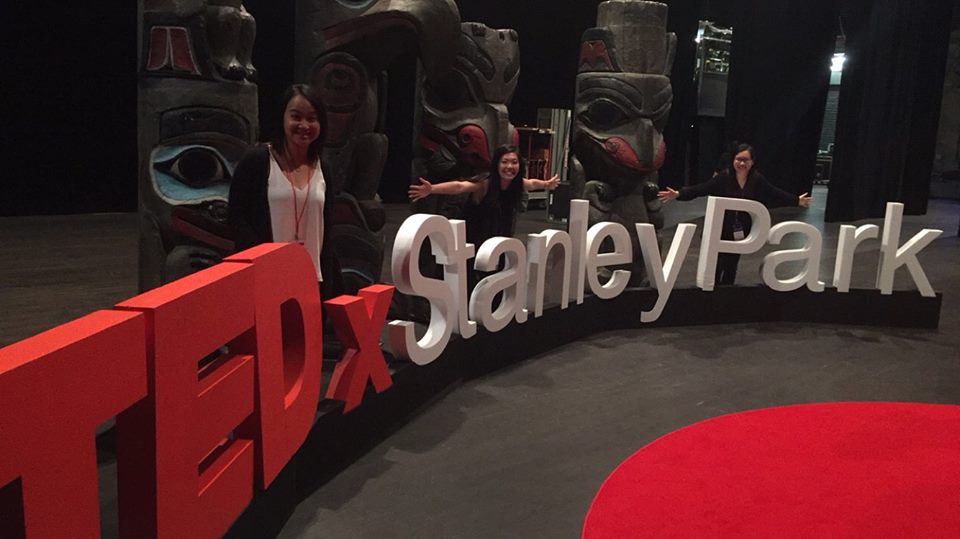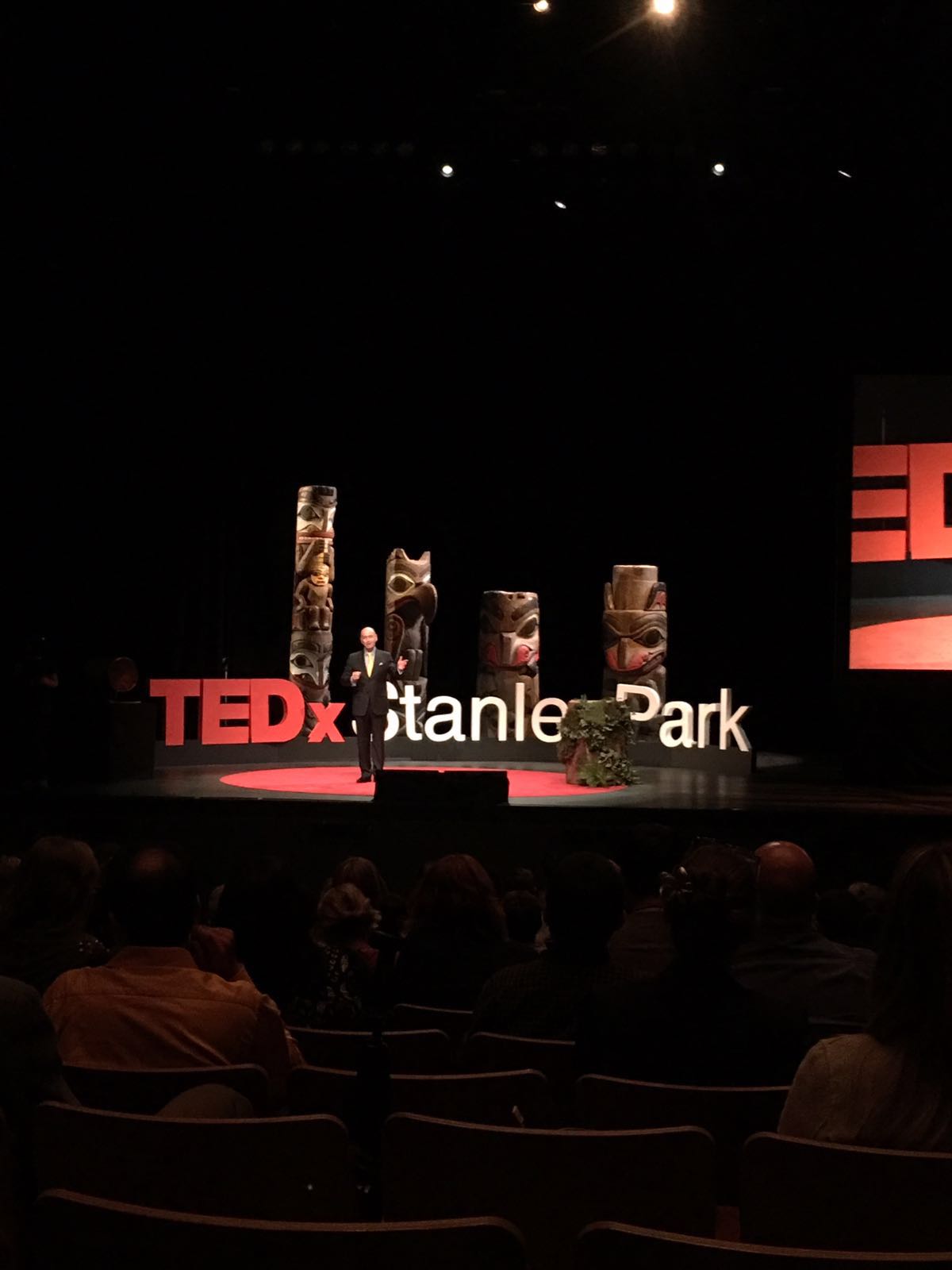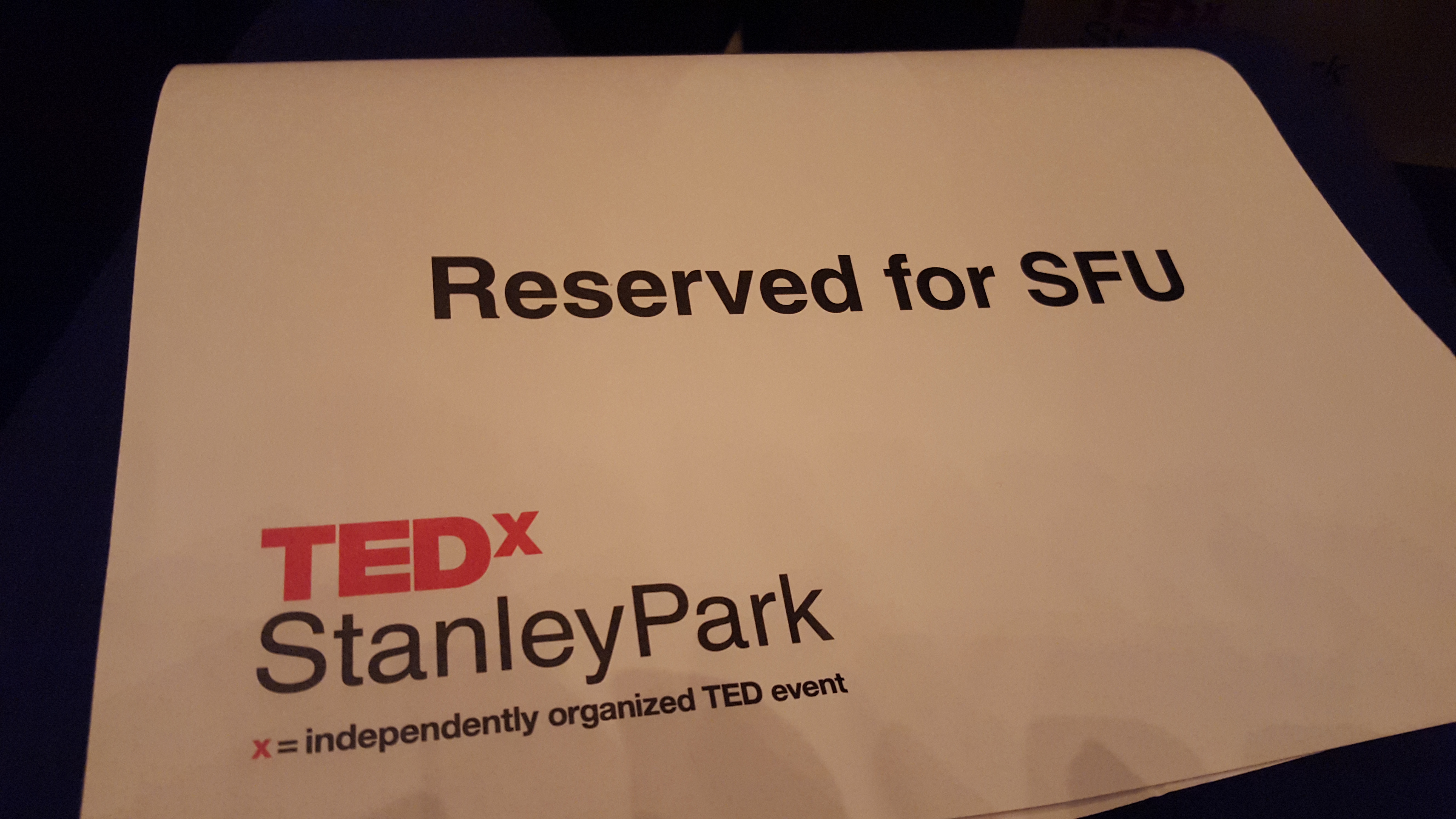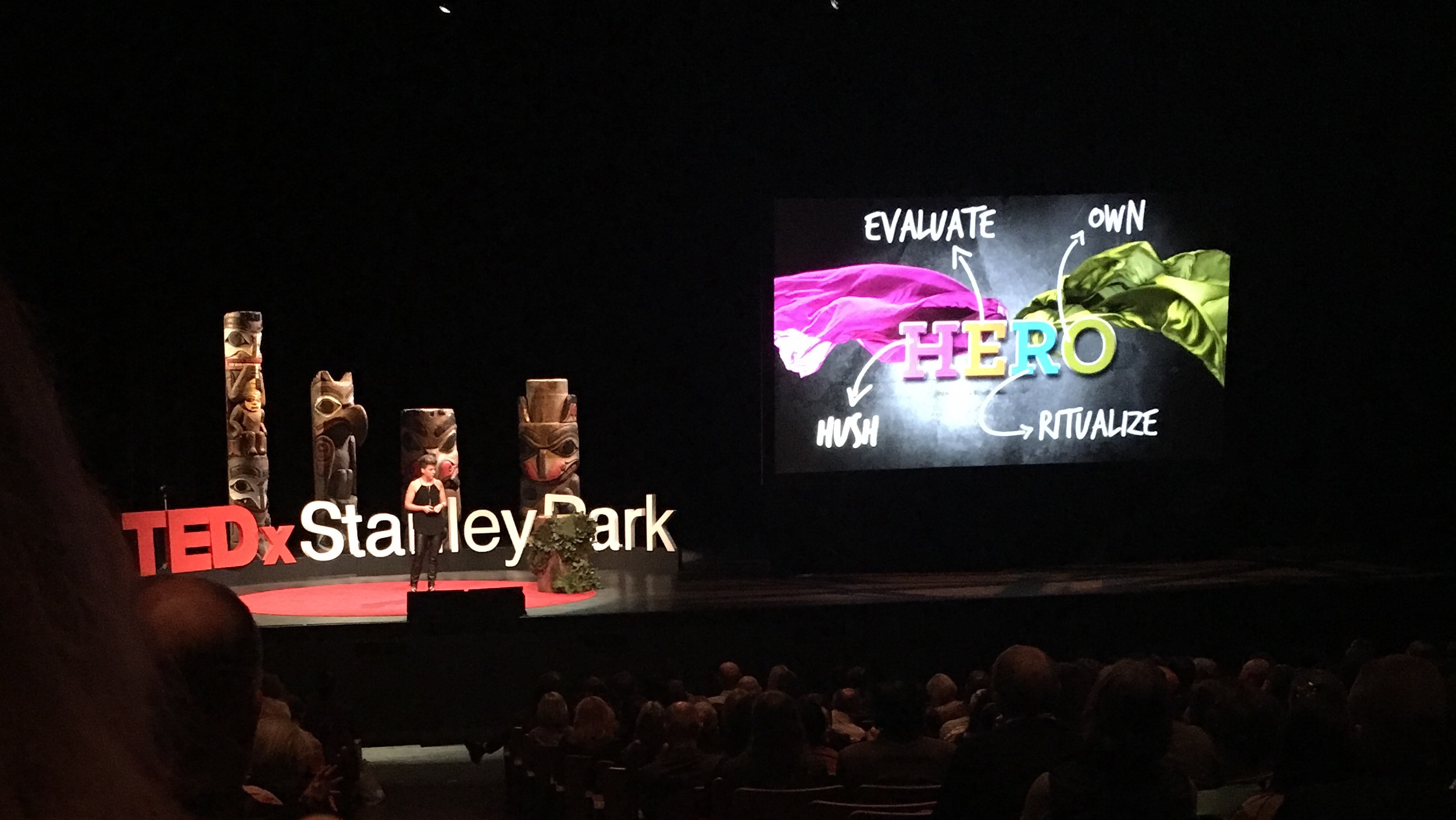
Attending a TED conference in person is something that everyone should experience. Rather than selectively choosing the topics or speakers that interest you online, this event forces you to go outside of your comfort zone and watch topics that you may not necessarily be interested in right away. There’s no skipping to the end, there’s no reading comments on what other people thought, and there’s no existing “up votes” or “down votes” to skew your judgement.
For me, storytelling has always been a way of life. Watching this diverse cast of speakers has shown me effective ways of telling stories in ways I have never previously imagined.

Lesson #1: Subtly take the audience by surprise
When Connor Beaton serenaded the audience with a verse from an Italian opera in the middle of his talk, no one felt that it was out of place. As a youth, he was bullied because he wanted to sing the national anthem at school and “singing is for girls”. Seeing him overcome this challenge in his life made the audience feel complete, as he was able to rise above this stereotyped perception of who he should be. After he sang it, it felt completely natural, as if we should have known it was coming all along.

Lesson #2: Humour used in a serious talk can be very effective
Dr. Gurdeep Parhar’s chosen topic on racial stereotyping and subconscious bias is a very heavy subject. However, he recognized that keeping an audience at the low point the entire 18 minutes is emotionally draining. In appropriate moments, he would bring in elements of his authentic humour that charmed the audience. In one anecdote, he described how he conducted elaborate research to create a meal plan suitable for an iron-deficient patient he had assumed to be vegetarian due to her culture. Once she heard his meal plans, she said: “Would it be easier to eat two hamburgers instead?” Not only does this story relate to his topic, it gives the audience some much-needed comic relief.

Lesson #3: Not everything needs to go as planned
Isabelle Mercier has a big personality, which comes across clearly to everyone. At one point in her talk, she forgot the next key point, so she says out loud: “What’s next”. An indistinct voice in the audience yells out and she snaps back to action while acknowledging the temporary falter and the usefulness of having audience members who knew where her talk was going. This rebound from unplanned events made her humour and spirit come across more clearly. Her ability to bounce back from the stumble showed that it’s okay to go with the flow.
In the spirit of this TED-themed post, it seems appropriate to end with a call to action: From this experience, I will undoubtedly attend more TEDx conferences and watch TED videos that I wouldn’t normally select. I challenge you, reader, to do the same. Will you join me?
BIO:
 A perpetual learner, Xinyan Chen actively seeks new opportunities to expand her knowledge in health, innovation, and technology. Her entrepreneurship background began with Enactus SFU, where she took on various roles including Director of External Relations, Nationals competition presenter, and president’s advisor. With RADIUS SFU, she co-founded EnableLife, a social venture for people with disabilities and their support networks to share useful information for easier living. This year, Xinyan is working with the Beedie Student Engagement Office to develop a public speaking program for students. When she’s not at work or school, you can find her scuba diving, reading biographies, or watching documentaries.
A perpetual learner, Xinyan Chen actively seeks new opportunities to expand her knowledge in health, innovation, and technology. Her entrepreneurship background began with Enactus SFU, where she took on various roles including Director of External Relations, Nationals competition presenter, and president’s advisor. With RADIUS SFU, she co-founded EnableLife, a social venture for people with disabilities and their support networks to share useful information for easier living. This year, Xinyan is working with the Beedie Student Engagement Office to develop a public speaking program for students. When she’s not at work or school, you can find her scuba diving, reading biographies, or watching documentaries.